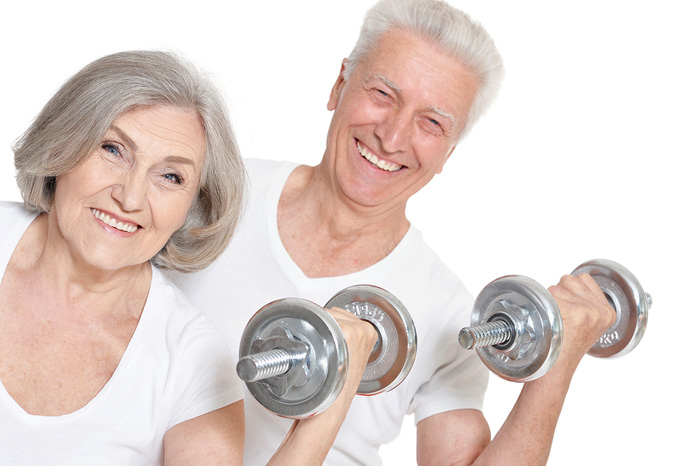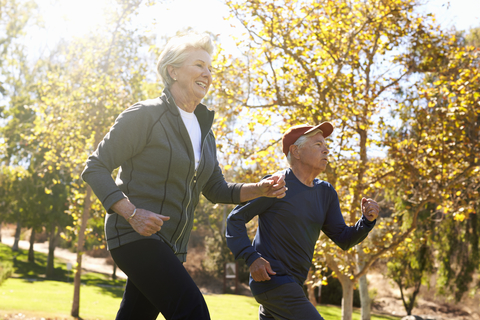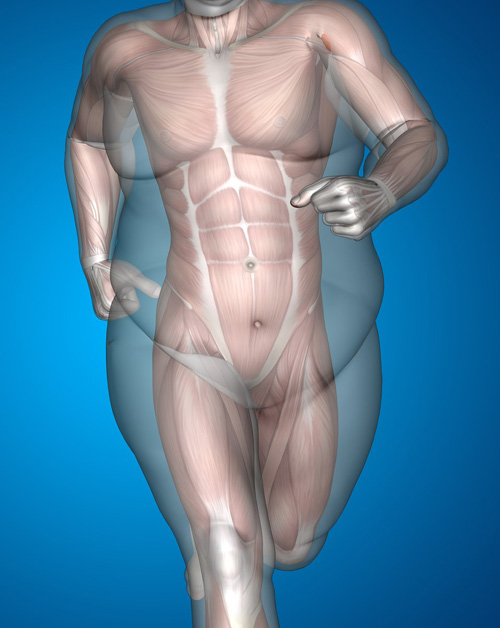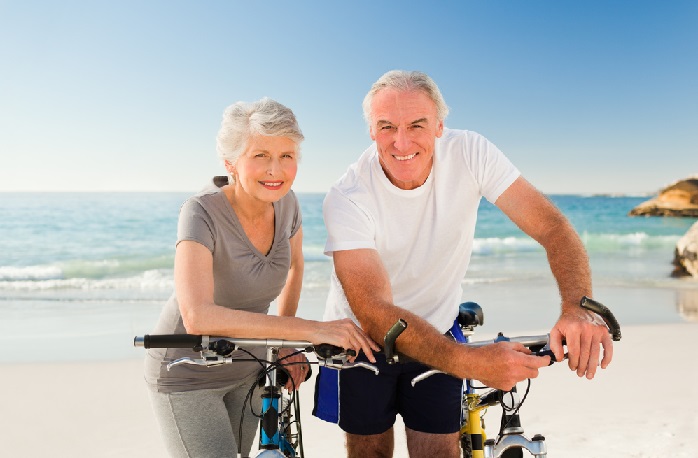Health Benefits of Sex
Written by Bonnie Gabaldon
Sex and Aging -- No Excuse to Not Enjoy the Benefits of Sex
There is no age limit on reaping the health benefits of sex and enjoying your sexuality. Getting older is no excuse for having less sex.
Although illness or disability may have an impact on the frequency of sex, so do stress, anxiety, defensiveness, poor communication, poor health, and heart disease.
Additionally, aging itself does not cause erectile dysfunction.
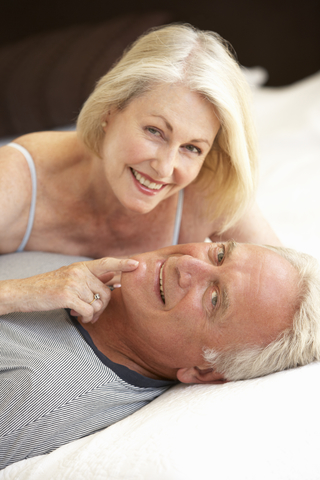
Frequent Sex Studies
A British study of 1,000 men found men who had at least 2 orgasms a week had half the death rate as those who indulged less than once a month.
A study of 29,000 men found that men between the ages of 46-81 who ejaculated frequently developed less prostate cancer.
People who have sex one or two times per week get sick less often.
Men who made love at least twice each week were 45% less likely to develop heart disease than those who had sex once each month or less.
Frequent sex helps increase vaginal lubrication, blood flow and elasticity, which makes sexual activity more enjoyable.
The Many Health Benefits of Sex
A healthy sex life improves mood and raises life expectancy, among other things such as the following.
- lowers blood pressure and increases the ability to cope with stressful situations because it releases natural chemicals that ease stress, calm, and increase self-esteem;
- boosts the heart rate, and burns approximately 150 calories per half hour;
- helps maintain and increase flexibility and
balance;
- releases pain-reducing hormones, such as oxytocin, which can lead to partial or complete relief of headaches. A 2013 study found that migraine sufferers experienced a reduction or halt to painful headaches during sex;
- keeps hormone levels in balance, and boosts testosterone and estrogen levels in both men and women, which has a positive impact on increasing sexual desire;
- increases bladder control and may help avoid incontinence in women by strengthening the muscles that contract during orgasm;
- promotes sleep and increases a sense of bonding with your partner, as oxytocin is released during orgasm; and
- promotes feelings of relaxation and sleepiness after sex, when the body releases the hormone prolactin.

Context Matters
The health benefits of sex make it clear that sex is good for you. According to several studies, sex with love and within a long-term, committed relationship such as marriage is even better.
Sex in the later decades of life is more fulfilling for people in long-term relationships. A study of 500 couples between the ages of 58-85, reported higher levels of marital satisfaction at 40 years of marriage.
Adding to those benefits, findings show that if you are intimately connected to someone both emotionally and physically, you may be 3 to 5 times less likely to risk premature death and disease from all causes.
Aging and Sexuality -- How to Improve Your Sex Life
Exercising regularly with high-intensity interval training helps optimize your human growth hormone (HGH) production.
Normalize your insulin levels by eliminating sugars which can turn off the gene that controls your sex hormones.
Avoid smoking and excessive alcohol consumption.
Get plenty of high-quality sleep.
Lose weight and lower your total cholesterol level.
Check out natural alternatives such as:
- L-arginine, which may increase circulation in the genital tissue, resulting in strong erections, and better sexual responsiveness.
- Choline and vitamin B5 help to enhance ACH levels. ACH is the neurotransmitter that triggers sexual messages in the brain for both males and females.
- DHEA hormone promotes sexual arousal and increases response.
Touch
If for any reason you or your partner are unable to participate in sex, don’t forget the importance of touch. Science demonstrates that touch changes the chemical composition of the body.
Most of us have heard of the study by Dr. Spitz in the 1930s. Babies in nurseries that were not being touched by the attending staff were becoming ill and dying. Babies that were touched demonstrated a rapid decline in illness and mortality rates.
Another finding among premature infants found that those who received 3 massages each day over 10 days gained 47% more weight than preemies who weren’t massaged.
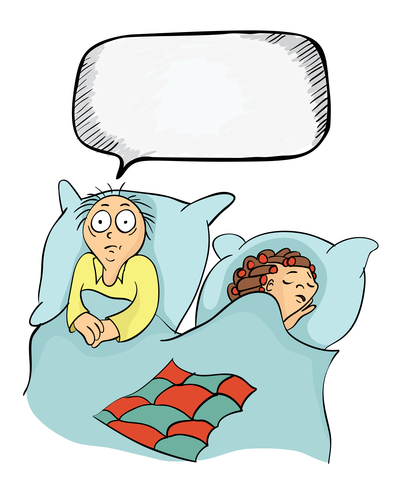 ERECTILE DYSFUNCTION may mean increased risk for heart disease regardless of other risk factors. ~American Heart Association’s journal Circulation
ERECTILE DYSFUNCTION may mean increased risk for heart disease regardless of other risk factors. ~American Heart Association’s journal CirculationIf you aren't sexually active, you should know that even simple expressions such as hugging can improve your mental and physical health, and reduce blood pressure.
More Topics That May Interest You
Recommended Article: Sex for life? Men's counter-stories on erectile dysfunction, male sexuality and aging

Writer/attorney, Bonnie Gabaldon, is the developer of the health & fitness website, BodiesOfEvidence.com.
Bonnie graduated summa cum laude from Oregon State University with honors. She is a member of Beta Beta Beta Biological Honor Society and Phi Kappa Phi Honor Society.
She researched and authored a significant undergraduate independent study paper, The Effect of Female Hormones on Elite Female Athletes During the First Trimester of Pregnancy.
Bonnie attended the University of New Mexico School of Law and Georgetown Law Center, and has been a licensed attorney since 2003.
Some of the advertisers on my website are affiliate partners, which means that I may receive a small commission from any sale, at no extra cost to you.
For example, the Amazon affiliate advertising program is designed to provide a means for sites to earn fees by advertising and linking to amazon.com.
Your tips and purchases help to support this free-information website.
Thank you.
The content of this website is for informational purposes only and not intended to be taken as a replacement for professional medical advice, care, diagnosis or treatment by a doctor, dietitian, physical therapist, nutritionist or fitness instructor.
DO NOT BEGIN ANY EXERCISE PROGRAM WITHOUT CHECKING WITH YOUR DOCTOR FOR UNDERLYING CONDITIONS THAT MAY PREVENT YOU FROM DOING SO.

